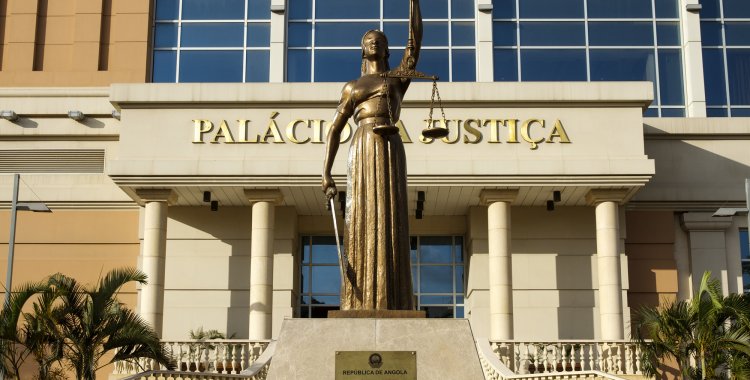For the entity, what exists today in Angola is a "machine and people (...) captured in the past by corrupt interests doing this fight against corruption.
For this reason, the "processes are physically lost in the courts, others get wrapped up, others come up with unacceptable decisions, and others are inexplicably prolonged," he added.
Thus, "handing over the fight against corruption to the existing judicial structure is a mistake," he concluded in his analysis entitled "Rule of Law and Corruption in Angola: for a mini-system of justice against corruption," to which Lusa had access.
In this context, Cedesa proposes in the document the creation of an anti-corruption judicial mini-system so that cases can move forward.
According to Cedesa, each national legal system admits several subsystems according to the matters or properties outlined. "This does not violate any conception of rule of law, on the contrary, it creates rules and obligations for all, transparent and clear, in certain areas," it stressed.
Therefore, "there will be a rule of law for normality and a rule of law for corruption," he argued.
The anti-corruption judicial mini-system, aimed at major crimes of an economic-financial nature and state capture, would thus function "with independence from other judicial and judicial bodies and would be composed of four parts," Cedesa proposes in the document.
The four parts would be: a special body with judicial powers for investigation and prosecution, a system of courts dedicated to these crimes, an autonomous body of judges dedicated to these courts, and, finally, a simplified procedural law, drafted similar to the current American or French law, that would allow for quick and fair trials.
"This body would be a mix of Judicial Police and Public Prosecutor's Office, having powers to investigate, seize, conduct searches and arrests, request international judicial cooperation and, in the end, make an indictment or dismiss a major corruption case," he specified.
In addition, "it would only work on these cases and would be composed of a corps of agents with focused and dedicated training."
However, he warned that the existence of a system of courts dedicated to these crimes, for the trial and appeal of cases of major economic-financial crime and state capture, would require a revision of the Constitution in what refers to Article 176 paragraphs 3 and 5.
"A jurisdiction for major crimes of an economic-financial nature should be admitted and the prohibition of courts with exclusive competence to try certain types of offenses should also be abolished," he said.
Cedesa advocated that, with an autonomous body of judges dedicated to the courts of the mini-system against corruption, Angola would have the advantage of having judges specialized in these matters, who would fill the posts in the courts.
If Angola does not plan to conduct a constitutional review on the issue, analysts suggested that the country, instead of creating an exclusive court system with its own judges, could establish specialized anti-corruption sections in existing courts.
Thus, the courts of the provincial capitals - or just the one in Luanda - as well as those of the Relação and the Supreme Court would have specialized sections for corruption. "This is already constitutionally possible, and the rest of the proposed mini-system would remain as described," they stressed.
The study group recalled that when the political power chose as its main objective the fight against corruption, it decided to do it "through the pre-existing judicial bodies and with the usual holders.
"There was no organic or personnel renewal, only mere adjustments, the vice-PGR [attorney general] rose to PGR, the presidents of the Supreme Court and Constitutional Court changed positions and some somewhat rushed laws on asset recovery were approved," he said.
For Cedesa, this choice of Angola must have been based on a "formalistic opinion, given by the most eminent Angolan jurists, according to which, the fight against corruption should be done within the rule of law and with the existing legal means," because only then would the necessary rights of defense and credibility of the processes be guaranteed.
At the same time, it allowed the country to "affirm that there would be no abuse on the part of the authorities because it was the judicial system in place that was functioning, within the usual norms of the rule of law.
"This legal normality seems correct, but in reality it is what prevents a real, swift and effective fight against corruption," said the entity.
What happens, he stressed, "is that a structure that has collaborated with and benefited from corruption is now being asked to fight it.
Safeguarding that in this structure there are "agents of change", judges, prosecutors, police officers, officials, who "should be praised for their hard work", Cedesa considered, however, "that they are an exception - even a broad one - and do not prevent the judicial structure as a whole from being conservative and averse to the risk of fighting its allies of yesterday".
In this context, the report noted that "the fight against corruption may end up being inglorious and not work, given the various structural impediments that exist."
Cedesa, which studies and researches political and economic issues in Southern Africa, especially Angola, was born from an initiative by several academics and experts who were part of the Angola Research Network (ARN).







